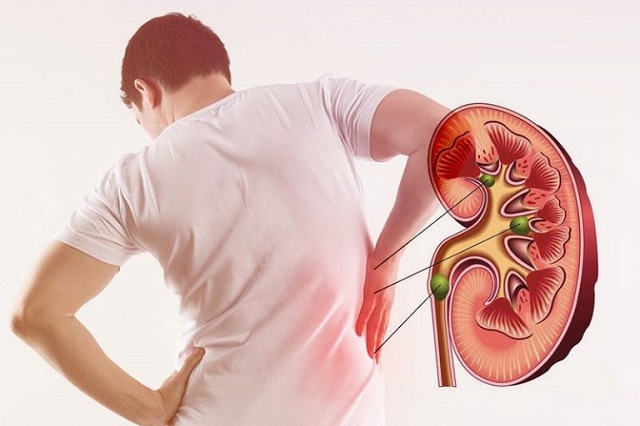Kidney stones are a common medical condition that can cause intense pain and discomfort if not treated properly. They form when certain minerals and salts present in urine crystallize and clump together inside the kidneys. While some stones are small enough to pass unnoticed, larger ones may block the urinary tract, causing severe pain and complications.
In recent years, lifestyle changes, dietary habits, and lack of proper hydration have made kidney stones more prevalent. By understanding their causes, symptoms, and treatment options, individuals can take preventive steps and manage the condition effectively.
What Exactly Are Kidney Stones?
Kidney stones, also known as renal calculi, are hard deposits of minerals and salts. They vary in size from a grain of sand to a large pebble. Small stones often pass naturally through urine, but larger ones may require medical attention.
Types of Kidney Stones
- Calcium stones – The most common type, often linked to high calcium or oxalate in the urine.
- Uric acid stones – Develop when urine is highly acidic, often in people with high-protein diets.
- Struvite stones – Usually form after urinary tract infections.
- Cystine stones – Rare and often hereditary.
Causes and Risk Factors
Kidney stones do not have a single cause; rather, multiple factors increase the risk of developing them. Some common reasons include:
- Not drinking enough water, leading to concentrated urine.
- Excessive intake of salt, sugar, and animal protein.
- A family history of kidney stones.
- Certain medical conditions like obesity, digestive issues, and gout.
- Use of certain medications that increase stone formation.
Symptoms of Kidney Stones
While tiny stones can go unnoticed, larger stones can cause severe symptoms such as:
- Sharp pain in the back, sides, or lower abdomen
- Pain that radiates to the groin region
- Blood in urine (pink, red, or brown urine)
- Frequent urge to urinate
- Pain or burning sensation during urination
- Nausea, vomiting, or fever if infection is present
How Are Kidney Stones Diagnosed?
Doctors use several methods to detect kidney stones, such as:
- Imaging tests like ultrasound, CT scans, or X-rays
- Urine tests to check for high levels of minerals
- Blood tests to detect kidney function and risk factors
Treatment Options for Kidney Stones
The treatment approach depends on the size, type, and severity of the stones.
1. Natural Passage and Medication
- Drinking plenty of water to flush out smaller stones
- Prescribed pain relievers to manage discomfort
- Medications to relax the urinary tract and make passing stones easier
2. Minimally Invasive Treatments
- Shock Wave Lithotripsy (SWL): Uses sound waves to break stones into smaller fragments that can pass naturally.
- Ureteroscopy: A thin instrument is passed through the urinary tract to locate and remove or break down stones.
3. Surgical Procedures
- Percutaneous Nephrolithotomy (PCNL): A minimally invasive surgery to remove larger stones.
- Open surgery (rare): Performed only when stones are very large or other treatments fail.
Prevention of Kidney Stones
Preventive care is crucial to avoid recurring stones. Some practical tips include:
- Drinking 2–3 liters of water daily to keep urine diluted
- Reducing salt and sugar consumption
- Limiting oxalate-rich foods like spinach, nuts, and chocolate
- Maintaining a healthy balance of calcium in the diet
- Following an active lifestyle and healthy body weight
Lifestyle Habits That Support Kidney Health
- Avoiding excess intake of processed foods
- Choosing fresh fruits and vegetables over junk foods
- Cutting down on fizzy and sugary drinks
- Regular health check-ups if you have a history of kidney stones
Final Thought
Kidney stones can be painful, but with timely diagnosis, effective treatment, and preventive care, they can be managed successfully. Being aware of the risk factors and adopting a healthy lifestyle plays an important role in keeping your kidneys healthy. For those who need expert care, it is worthwhile to explore advanced medical options for Kidney stones treatment in Chennai, where specialized facilities and modern approaches are available for effective recovery.





Comments